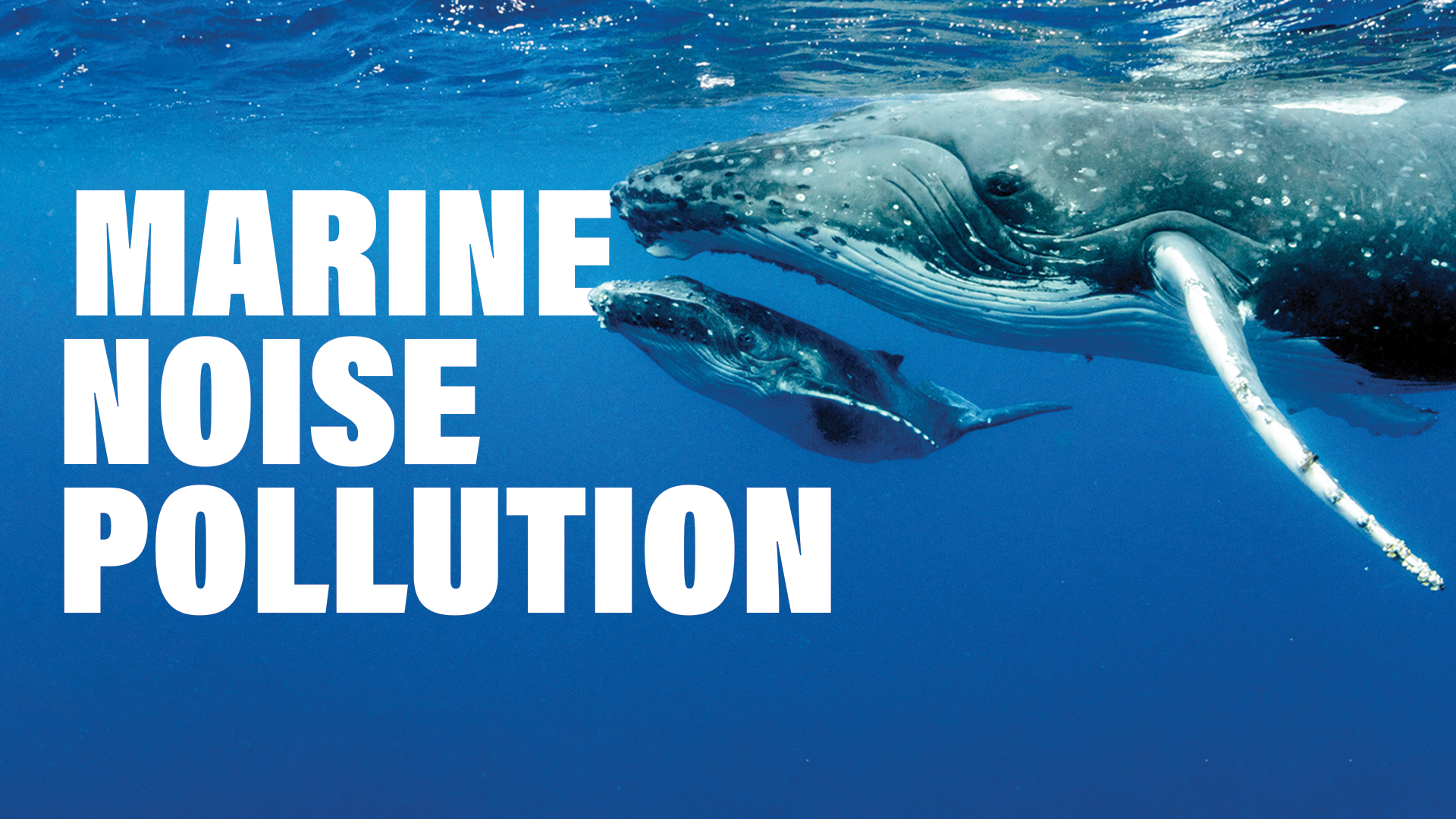Human-generated noise in the ocean, or marine noise pollution, has increased significantly over the last few centuries — and it's detrimental to ocean wildlife.
This rise has been attributed to the amplification of shipping activity, industrial fishing, coastal construction, oil drilling, seismic surveys, warfare, seabed mining, and sonar-based navigation across the globe. Ship traffic alone has more than doubled since 1950, and researchers estimate that this increase comes with a "doubling noise intensity" in the ocean every 10 years.
Not only has this made the ocean noisier, but it is also drowning out the natural sounds of marine life. These man-made sounds pollute the ocean with what once was dominated by the songs of whales and the soft hum of currents flowing from one corner of the ocean to another.
The origin—and impacts—of marine noise pollution
But first, what makes sound so special in the ocean—and why should we care about increasing levels of it?
Sound travels five times faster in water than in the air, which makes it an efficient way for many marine species to communicate, navigate, and monitor the vast expanse of our great big blue ocean.
Specifically, a whale's ability to communicate long distances (as much as 10,000 miles) through vocalization in the water is vital to their survival. Whale sonar allows the whales to find food, safely travel along coastlines, stay connected to other whale pods, and migrate to and from breeding and feeding grounds.
In other words? Marine noise pollution disrupts this entire system of communication, and risks leaving cetaceans and other species stranded and vulnerable. There is overwhelming evidence that marine noise pollution negatively impacts marine life and their ecosystems, disrupting behavior, physiology, reproduction, and even causing mortality.
At Sustainable Ocean Alliance, we know first-hand the critical dangers of marine noise pollution associated with deep-seabed mining as we actively rally to mitigate impacts through our ocean solutions. As if we need any more reasons to condemn deep seabed mining, researchers are actively verifying the negative impacts it has on the ocean as it pertains to sound.
Scientists predict that deep-sea mining could radiate through the ocean for hundreds of kilometers, creating a “cylinder of sound” from the surface to the sea bed. Noise levels in a radius of 4-6 kilometers from each mine could exceed thresholds set by the US National Marine Fisheries Service, above which there are risks of behavioral impacts on marine mammals.
Whales and other ocean megafauna provide both measurable and immeasurable benefits to our ecosystems—from blue carbon capture to sustaining fisheries. Many of these species are already at risk of extinction as global populations continue to decline at alarming rates. For an ocean already at great risk caused by unsustainable human activities, we must prioritize the health of critical marine species – for the ocean, for the planet, and for humanity.
As we look to prioritize the health of our ocean and its species over that of unsustainable human activities, SOA works with ocean solutionists that are paving the way for a safer environment for whales, cetaceans, and beyond:
Whale Seeker's proprietary technology uses AI to speed up the analysis of remotely sensed images to detect whales. Their data helps strengthen environmental impact assessments, support the industry in complying with marine regulations, improve companies’ bottom lines, and ultimately help protect whales.
Read more | Ocean Solutions Accelerator
SAVE THE DOLPHINS (STEDs) (SOA Microgrant Recipient)
This Ghana-based project builds awareness of the conservation status of dolphins and other marine mammals and builds the capacity of fishers to provide rescue assistance to stranded dolphins and other marine mammals. They utilize a combination of workshops and social and in-person media advocacy, as well as a volunteer program.
Read more | SOA Microgrants




Comments